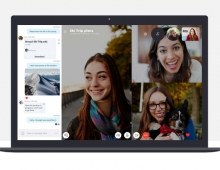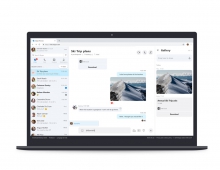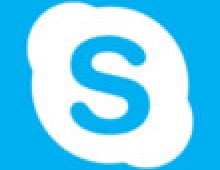
Skype Founders Bring Free Television to the Internet
The founders of revolutionary Internet telephony firm Skype unveiled a test version of an online television service that will be free to users.
Niklas Zennstroem and Janus Friis said they "combined the best of TV and the best of the Internet" in a venture called Joost to enable people to watch television online with "choice, control and flexibility."
Joost was a "piracy-proof" Internet platform based on the open-source Mozilla web browser and was crafted to guarantee copyright protection for creators and owners of content, according to its founders.
"People are looking for increased choice and flexibility in their TV experience, while the entertainment industry needs to retain control over their content," said Joost chief executive Fredrik de Wahl.
"With Joost, we've married that consumer desire with the industry's interests."
Luxembourg-based Joost claimed to be the first global television distribution platform that brought content owners, advertisers, and audiences together in an interactive, community-driven environment.
"We are not only giving the world a TV, we are giving them a TV they can play around with; you can add things to, you can modify," said Joost chief technology officer Dirk-Willem van Gulik.
"You will control what you watch, how you watch it, and what you do with it."
Joost had a team of workers converting television programs to digital format and adding information about actors, action, titles, directors and "all the fun facts so people could search and find them," Gulik said.
The shows will be shared in a peer-to-peer format, with users getting them from each others' computers, according to Gulik.
Seed content will be sent out from a set of Joost computer servers at the firm's main data center in Luxembourg City and elsewhere.
"We store the original content on a handful of little server stations around the world and send the data out the first time," Gulik said. "After that, it sits in the peer-to-peer network."
Joost based the platform in open-source computer code to make it easy for programmers to create "plug-ins," small applications that perform in ways that will enhance the service, according to Gulik.
Opportunities to download the software as part of a private test of the service were being offered at the website www.joost.com.
Joost was working with television studios and other content owners that could use traditional money-making tactics such as advertising to profit from online viewers, according to Joost vice president Hendrik Werdelin.
Joost will be competing against video-sharing websites such as Google-owned YouTube and a host of Internet Protocol Television (IPTV) services displayed last week at the Consumer Electronics Show in Las Vegas.
Friis and Zennstroem are the entrepreneurs behind Internet companies Kazaa and Skype, which was bought by US-based eBay for 2.6 billion dollars in 2005.
Joost was a "piracy-proof" Internet platform based on the open-source Mozilla web browser and was crafted to guarantee copyright protection for creators and owners of content, according to its founders.
"People are looking for increased choice and flexibility in their TV experience, while the entertainment industry needs to retain control over their content," said Joost chief executive Fredrik de Wahl.
"With Joost, we've married that consumer desire with the industry's interests."
Luxembourg-based Joost claimed to be the first global television distribution platform that brought content owners, advertisers, and audiences together in an interactive, community-driven environment.
"We are not only giving the world a TV, we are giving them a TV they can play around with; you can add things to, you can modify," said Joost chief technology officer Dirk-Willem van Gulik.
"You will control what you watch, how you watch it, and what you do with it."
Joost had a team of workers converting television programs to digital format and adding information about actors, action, titles, directors and "all the fun facts so people could search and find them," Gulik said.
The shows will be shared in a peer-to-peer format, with users getting them from each others' computers, according to Gulik.
Seed content will be sent out from a set of Joost computer servers at the firm's main data center in Luxembourg City and elsewhere.
"We store the original content on a handful of little server stations around the world and send the data out the first time," Gulik said. "After that, it sits in the peer-to-peer network."
Joost based the platform in open-source computer code to make it easy for programmers to create "plug-ins," small applications that perform in ways that will enhance the service, according to Gulik.
Opportunities to download the software as part of a private test of the service were being offered at the website www.joost.com.
Joost was working with television studios and other content owners that could use traditional money-making tactics such as advertising to profit from online viewers, according to Joost vice president Hendrik Werdelin.
Joost will be competing against video-sharing websites such as Google-owned YouTube and a host of Internet Protocol Television (IPTV) services displayed last week at the Consumer Electronics Show in Las Vegas.
Friis and Zennstroem are the entrepreneurs behind Internet companies Kazaa and Skype, which was bought by US-based eBay for 2.6 billion dollars in 2005.





















